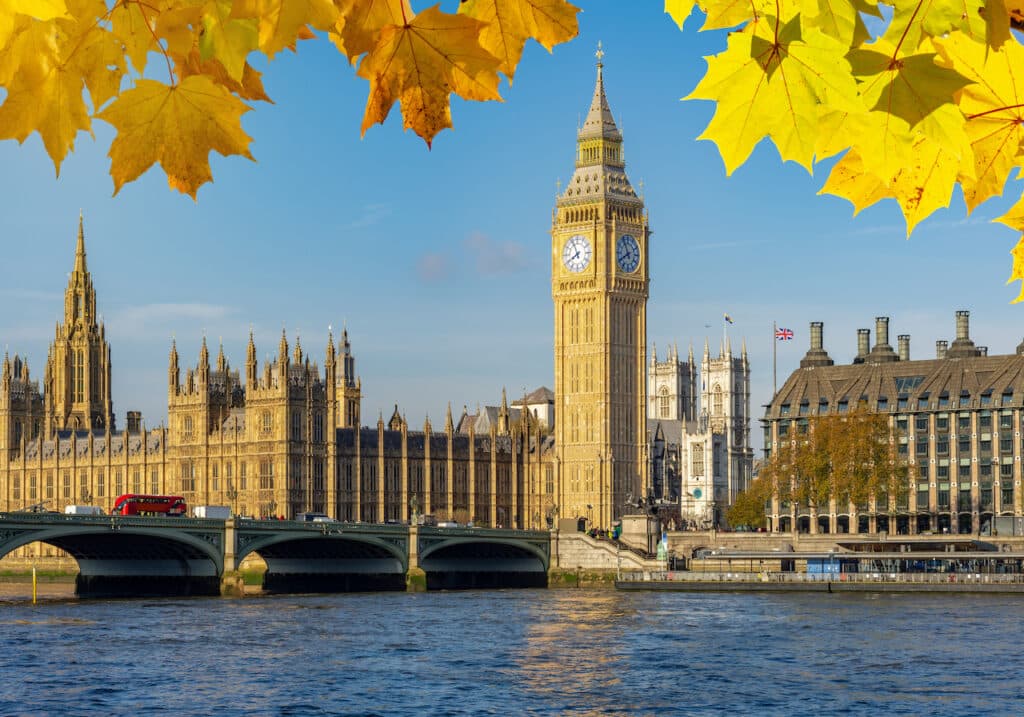Panama is an incredible place to call home – even if you’re only there temporarily as a US expat. With bountiful produce, idyllic weather, a laid-back atmosphere, and just a quick plane ride back to the States, it’s no wonder this Central American country is in popular demand.
You’ll find more than 16,000 US expats in Panama, and many other expats from other countries, for good reason. Panama has one of the most generous tax codes in the world.
And while you may not consider taxes when picking your new temporary home base, you should. When living outside the US, it’s important to know how other countries’ tax regulations will affect you.
Here’s everything you should know about living as a US expat in Panama.
What are the residency requirements in Panama?
An official resident of Panama is a national born in the country, though if you’ve lived in Panama as a US expat for at least five years, you can apply for a permanent visa. You can also apply to residency programs to obtain residency status, in addition to the usual process of applying for citizenship.
You are considered a non-permanent Panamanian resident if you’re an expat and you spend more than 183 days in the country within a given tax year. So, if you spent 200 days in Panama in 2022, you’d be considered a resident for 2022.
US expats who spend less than 183 days in Panama are non-residents, who are not liable for Panamanian taxes, but they are still liable for US taxes. In fact, even if they are considered Panama residents (and paying taxes there), US expats would still have to file US tax returns.
How Panamanian Taxes Work

If you’re either a resident or a non-permanent resident in Panama, you’ll need to pay taxes on any income earned in the country. You do not have to pay Panamanian taxes on income earned outside of the country.
So, if you are a non-permanent Panamanian resident who earned $50,000 from work in Panama, you’ll owe Panamanian taxes on this income. If, however, you’re a non-permanent resident who only earns a foreign salary, you would not owe Panamanian taxes.
Panamanian Tax Rates
What’s great about living in Panama as an American is that the country is well-known for its low, progressive tax rates, with the max tax rate topping out at 25%. If you do earn money in Panama, here are the country’s three different tax brackets:
| Taxable Income | Tax Rate |
|---|---|
| Up to $11,000 | 0% |
| $11,001 – $50,000 | 15% on income over $11,000 |
| $50,001 and up | 15% on first $50,000; 25% on remainder above $50,000 |
Remember, Panama’s income tax is only applied to the income earned in Panama.
Residents in Panama also pay into Social Security taxes. Expats, including Americans living in Panama, must pay Panamanian Social Security Tax (8% of Panamanian income) and Educational Insurance Tax (1.25% of Panamanian income).
When are Panamanian taxes due?
Residents in Panama have until March 15th to file Panamanian taxes each year. However, most US expats won’t actually have to file a tax return in Panama – even if you owe taxes. That’s because, like US employers, when working for an employer in Panama, your income taxes are automatically withheld.
Unlike in the US, this means you do not have to file a tax return in Panama if you have one salary from one employer in the country. However, if you have multiple salaries or earn freelance income from a Panamanian company that does not withhold taxes, then you would file a tax return.
Do US citizens living in Panama still have to file US tax returns?
Yes. Even if you’re considered a Panamanian resident who pays Panamanian taxes, if you’re still a US citizen, you must file a US tax return. That’s because the US uses a citizenship-based taxation system. As long as you’re technically a US citizen, you must file a US tax return and report your income to the Internal Revenue Service (IRS).
Read more: What is Citizenship-Based Taxation? – Bright!Tax
Are US expats living in Panama taxed twice?
If you earn income in Panama as a US expat, that means you could technically owe taxes to two different countries. But, the IRS offers foreign tax programs designed to help US expats avoid paying taxes multiple times on the same income. These double taxation programs include the Foreign Tax Credit and the Foreign Earned Income Exclusion.
Foreign Tax Credit (FTC)
US expats can claim the Foreign Tax Credit if they’re already paying taxes on income earned in another country. This allows US expats to claim a dollar-for-dollar credit on foreign income that you already paid taxes on in another country, in order to lower your US tax bill.
You can only qualify for the FTC if you paid or owe foreign taxes and meet all three of the criteria below:
- – Your current home country requires income taxes. The country where you’re living must impose income taxes by withholding your income or requiring contractors to pay taxes by the income tax deadline.
- – The taxes you paid must have been legal.
- – The taxes you paid must have been income tax and no other form of tax.
If all three requirements are true, then you could qualify for this tax credit. You can claim the FTC for up to the amount of foreign taxes you paid.
For instance, if you earned $55,000 in Panama last year and paid $10,000 in taxes, you could only claim up to $10,000 in credits through the FTC.
Read more: The US Foreign Tax Credit – A Complete Guide for Expats
Foreign Earned Income Exclusion (FEIE)
Another popular tax option to consider if you live in Panama is the Foreign Earned Income Exclusion. This allows you to exclude foreign income from your US tax return. You could exclude up to $112,000 through the FEIE, for 2022.
Not every US expat living in Panama will qualify for the FEIE. To qualify, you must pass one of two tests, which include:
- – The Physical Presence Test. You’ll pass this test if you were outside of the US for more than 330 days during any 12-month consecutive period. So, for instance, if you currently reside in Panama as a US expat, but traveled back to the US for the first 60 days of 2022, you might not pass the Physical PresenceTest for the 2022 tax year.
- – The Bona Fide Residence Test. You’ll pass this test if you can prove you are a foreign resident of Panama with a residency card or visa or if you can prove that you are paying Panamanian taxes as a resident or temporary resident.
If you pass one or both of these tests, this means you can exclude the first $112,000 (for the 2022 tax year) that you earn in income. So, if you earn $88,000 in income for 2022 and are eligible for the FEIE, you could effectively lower your US taxable income to $0, potentially eliminating your tax bill.
Read more: IRS Foreign Earned Income Exclusion 2022 – Ultimate Guide
Other Tax Requirements When Living in Panama as a US Expat
You could have other US tax reporting requirements when living abroad in Panama. One of the most common tax reporting requirements US expats also have to be aware of is the FBAR.
The FBAR (Report of Foreign Bank and Financial Accounts) is a financial record of any foreign bank accounts you hold. If you have a foreign bank account that has a balance of $10,000 or higher, you’ll need to file an FBAR. You’re also required to file an FBAR if you have multiple foreign bank accounts that combined hold more than $10,000.
Read more: Foreign Bank Account Report (FBAR) Filing – Bright!Tax
Do US expats living in Panama have other tax requirements?
If you own your own business, you may also have to report and pay additional taxes on your US tax return. There are different tax rules depending on if you own your own business for freelance ventures (such as an LLC or sole proprietorship) or if you own or partially own a controlled foreign corporation.
What if I’ve been living in Panama for years and owe previous US taxes?
If you’re a US expat living in Panama and you didn’t realize you were on the hook for US taxes, don’t worry. You’re not alone. Tax rules can be confusing, especially when you change countries. The good news is that the IRS offers a penalty-free amnesty program called the Streamlined Procedure that can help you catch up on past-due taxes.
The Streamlined Procedure lets US expats who are behind on past-due returns catch up, without fear of penalties. To qualify, you must not have filed previous US tax returns due to non-willful negligence. This means you either did not know you had to file US taxes or, perhaps, you were unaware of reporting deadlines.
In addition, the IRS must not have reached out to you already with a Failure to File notice or regarding a balance owed. You won’t qualify for the Streamlined Procedure if you knew you owed taxes and did not pay them or if the IRS has already contacted you.
Stay Compliant with US Taxes While Living in Panama
Handling US taxes can be a bit more challenging when living abroad – even in a low-tax country like Panama. If you have questions or want a second set of eyes on your US tax returns before filing, let Bright!Tax help.
Get started by connecting with an experienced Bright!Tax CPA today.

 Connect on LinkedIn
Connect on LinkedIn

